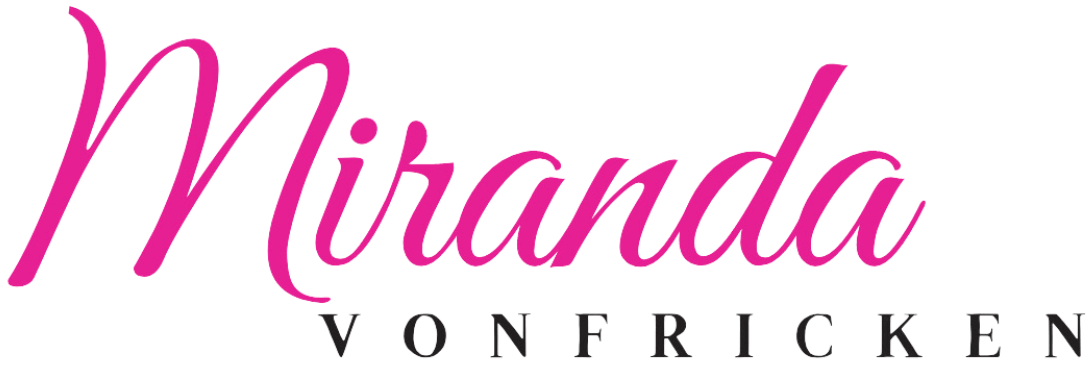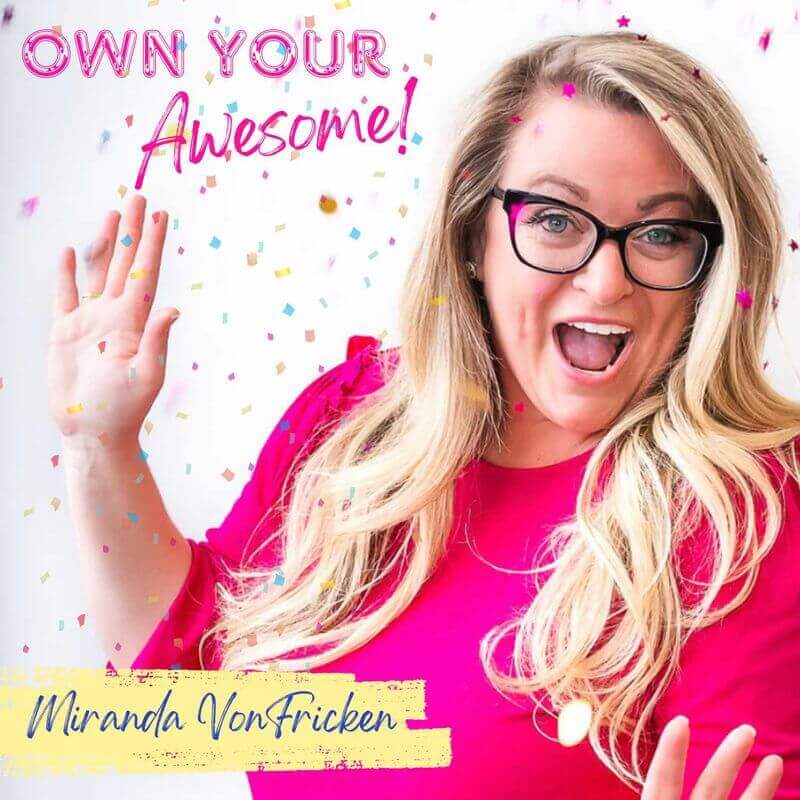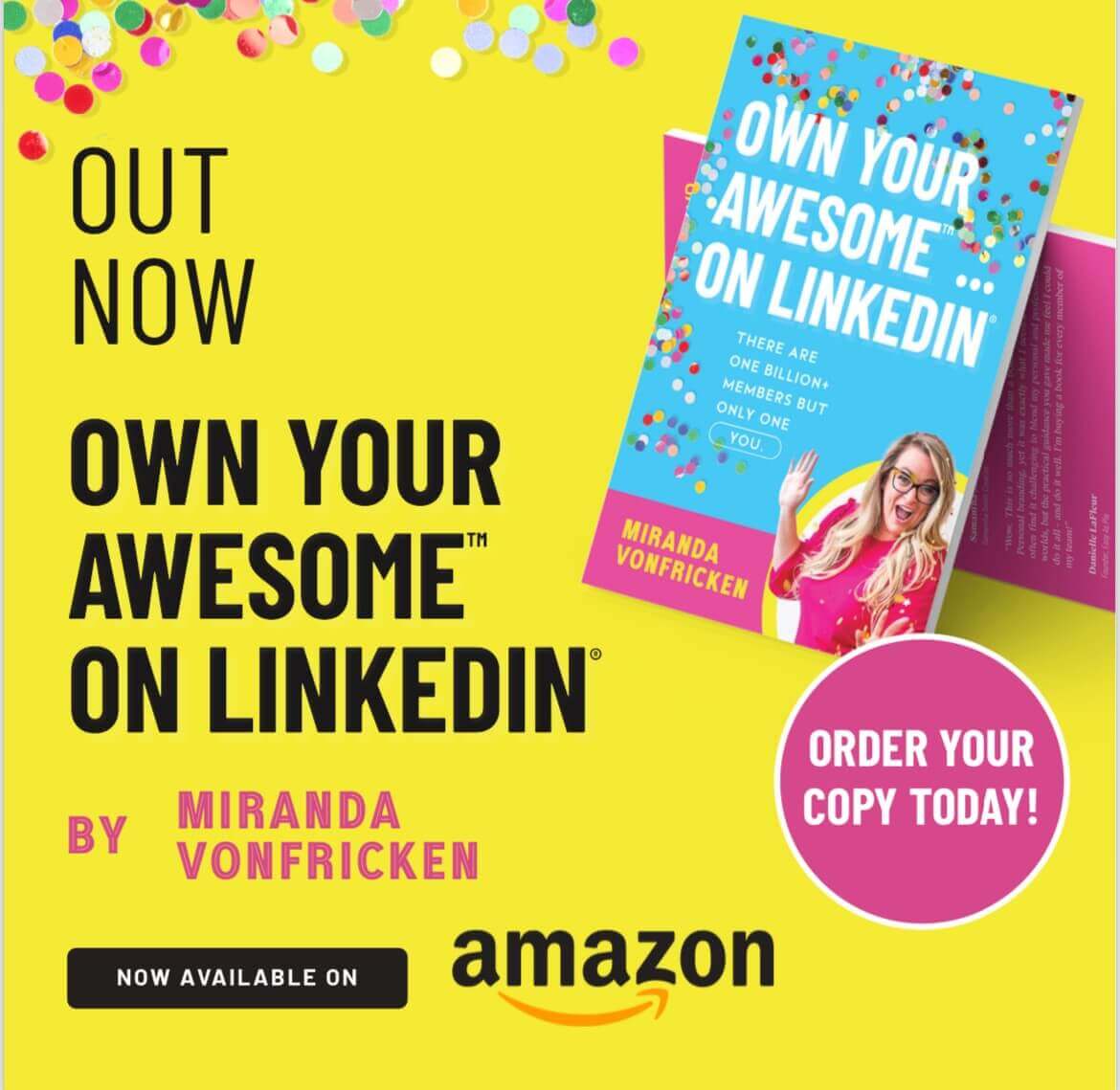In a world driven by digital connections and social media, the power of personal storytelling cannot be understated. Whether you’re a business owner or simply navigating your life, understanding how much of your story to share and how to do it effectively can significantly impact your personal and professional journey. This episode of “Own Your Awesome” with host Miranda Von Fricken dives deep into the nuances of owning and sharing your story. Let’s break down the key takeaways and learn how to master the art of sharing.
The Power of Voxer and Peer Feedback
Miranda begins by sharing her use of Voxer, an innovative walkie-talkie app that facilitates real-time communication. This tool’s effectiveness in providing instantaneous feedback and discussion forms a cornerstone in Miranda’s storytelling process. Notably, it was a Voxer conversation that spurred the topic of the episode. A friend, prepping for a podcast interview, sought advice on how much of her story to share, which sparked Miranda’s reflections on storytelling.
Determining How Much to Share
One of the most common questions Miranda encounters is, “How much of my story should I share?” This seemingly simple question opens a pandora’s box of considerations. Miranda stresses that storytelling doesn’t require laying your entire life bare for the world to scrutinize. Instead, effective storytelling involves selecting nuggets of experiences that resonate with your audience and serve a purpose.
Identifying Impactful Stories
Miranda’s advice to her friend encapsulates a crucial lesson: you don’t have to relay your entire life story. Share stories that encapsulate significant lessons or transformations. This could be anything from a career setback you overcame to a personal milestone that shaped your worldview. The emphasis should be on the impact and the message rather than the quantity of the stories.
Transparency and Boundaries
Navigating transparency in storytelling is a balancing act. Miranda highlights the importance of setting personal boundaries. You do not owe anyone the most intimate and traumatic details of your life unless you’re comfortable sharing them. Instead, focus on stories that you have processed and feel ready to share. These narratives will be the most impactful because you can tell them from a place of understanding and strength.
Owning Your Story
Owning your story means recognizing and accepting every part of your journey. It’s about processing and integrating your experiences into your current identity. Whether or not you choose to share these parts is entirely up to you. Ownership is about internal acknowledgment, while sharing is an external choice.
Crafting a Narrative that Serves
Effective storytelling isn’t just about what happened to you; it’s about how you frame these events for your audience. Miranda advises focusing on stories that serve a purpose. Share those that guide, inspire, or provide lessons to your audience. For business owners and professionals, this often means integrating personal anecdotes that underline your expertise or journey in your field.
Responsibility in Storytelling
Miranda touches on an often overlooked aspect of storytelling – the responsibility it entails. Sharing personal stories, especially those involving other people, requires sensitivity and ethical consideration. Ensure you’re not divulging anything that could harm or betray the trust of others involved in your narrative.
Conclusion: Your Story, Your Choice
In the episode, Miranda’s core message is empowerment. Your story is yours to tell, or not tell. Each experience is a chapter in the book of your life, and you hold the pen. As you navigate the world of digital storytelling, remember that the most powerful stories come from a place of authenticity and intentionality. They are tales you’ve owned, processed, and are now ready to share to inspire and impact others.
Engage with Miranda
If you find yourself needing help navigating or crafting your unique story, Miranda is open to discussions. Connect with her on LinkedIn or Instagram for personalized advice and support in uncovering and communicating your journey in a meaningful way.
By understanding and embracing these elements, you can master the art of sharing your story in a way that is both impactful and true to yourself. Happy storytelling!
Transcript:
Miranda [00:00:01]:
Hello. Hello. And welcome to another episode of the Own Your Awesome podcast. I’m your host, Miranda Von Frickin. Today, I wanna share with you something that actually popped up this morning for me on my morning walk. Often, I will utilize Voxer, v o x e r. If you’ve never heard of it, I’m obsessed with it. It’s essentially like a walkie talkie app on our phones.
Miranda [00:00:25]:
And I use Voxer often to and I’m not sponsored or doing this as a commercial, but I’m completely open to it. I use Voxer with my clients and with my friends and masterminds that I’m a part of to hash things out. Right? I mean, I’m I’m obsessed with the app. I actually started using it with a coach of mine, and then it just kind of exploded from there. And so there’s this group that I’m a part of, and one of the women within the group had sent a message letting us know she’s gonna be part of a podcast. She’s being interviewed and very excited. She’s got a new podcast out herself. It’s a whole thing.
Miranda [00:01:04]:
And so I was really pumped to hear she’s getting some traction. But her question and the only reason I’m not telling her podcast or shouting it from the rooftops is because of this question, and I wanna make sure that she has her anonymity. I’m a keep her identity safe. Y’all know what I’m talking about. But I wanted to answer this question, not just for her, but for you as well. For anyone who as you know, of course, I’m always preaching LinkedIn. Like, I’m obsessed with LinkedIn for visibility, for your business, for your career elevation, for personal branding, all the things. Right? LinkedIn’s my jam.
Miranda [00:01:44]:
Just wrote the book on it, literally. And so I’ll talk more about that in future episodes. But because of that, I’m often talking to people about sharing their story. And there is this question that comes up almost 99.9% of the time, and it’s, how much do I share? Alright? And this question also came up in Voxer with one of my friends, and she was like this she was pre given some questions for the podcast she was gonna be on. And one of them said, what is your story, and and what do you want people to take from this story? What do you want the women listening to know? And it’s such a it’s a basic question, but it’s a it’s a really great starter question. Right? If you’re interviewing somebody for the first time and it’s not a a well known person. So you want to hear their story from their perspective. And she got really nervous because she wasn’t sure what to talk about.
Miranda [00:02:37]:
I mean, we all have multiple stories within each of us, And I thought that question, although not a bad question, I thought it was just not completed. Right? Like, what’s your story and what do you want people to take from it? And do we like, you know me. I’ve got, like, 4,000 stories, but she has 30 minutes for the whole entire episode. And that was just 1 point 1 to 2 questions, and I I thought it was kinda funny. And so I put her mind at ease to let her know because she’s got tons of stories. She’s got some stories with her parents, some trauma in her background, some relationship stuff she wants to talk about. She’s a parent herself, and so there’s a lot of different things that she could talk about. And there is one part of her fitness that had become essentially, like, her her escape and her healer and her best friend, and and she wants to really, like, talk about the biggest part of her healing, which was her working out, with the specific workout that she does.
Miranda [00:03:35]:
And so we all went back and forth with her, and I actually listened to all the responses before giving my own response because I thought for sure this was gonna come up. And I was just like, yeah. Somebody will say it. You know? I’m like a weekend behind on my boxers as always. And so I thought for sure somebody would have responded with what I’m about to say, and they didn’t. And I was quite surprised. And so I I had to go in there and just say, like, listen. Hey.
Miranda [00:04:02]:
Congrats. Like, that’s amazing. You’re getting interviewed on a podcast. Who doesn’t want that to elevate your brand and business? That’s amazing. But I also wanted to put her mind and heart at ease about sharing your story, and I wanna do the same for you guys. And I sent her one saying that’s amazing. Here’s a little here’s a little taste of what I think you should do, but, of course, do what feels right to you. And then I came back with something a little bit bigger, overarchingly, that I was like, this is actually the message you really need.
Miranda [00:04:29]:
So I’ll give you both. So the bit of advice I gave her, and this is for anybody who’s listening, don’t feel like when you get that question, like, oh, what’s your story? What do you want everyone to know about? It doesn’t have to be this big, grand story. It can just be, this is what I’m working on these days. It can be, here’s something I overcame or here’s something I learned. Here’s a lesson. It doesn’t have to be this huge life story because who the hell’s got their whole life together? You know what I mean? Like but we each have little bits of stories within the grand scheme of our life journey here. So if you’re someone who has a brand or a business and is putting yourself out there in content or even wants to start, take this little bit of advice as a great foundation. You don’t have and this is actually the biggest piece of advice I gave her, is you don’t have to share everything with everybody.
Miranda [00:05:26]:
So that was the biggest piece of advice, and I’ll break it down a little bit for you. So the little nuggets I was talking about with my friend, I said, listen. You’ve got, like, 45 stories you can whip out of your hat right now and tell her, but maybe start by saying, this is a beautiful question. Oh my gosh. But I I kinda wanna let you know, I’ve got tons of stories within my main overarching story, and the one I really find impactful today is x, and you go out with whatever that story is. You know, the story of my relationship, the story of my healing, the story of my elevation or my expansion or my word for the year, and I came up with that because of something I went through or a lesson I learned. You have 30 minutes on a podcast. She can’t tell her whole story.
Miranda [00:06:09]:
She can tell one nugget and the whole journey of that nugget. Right? The lesson you learned, how you overcame it, how it affected your life, and what you did to change it. And so I’ll also say that with content. You know me. I’m a ghostwriter. I love writing people’s content and my own, but you’re not gonna get my whole story in one post. There’s just not enough characters. And, like, it’s not a book.
Miranda [00:06:35]:
We’re just so the whole point is I wanna share with you. I I know those of you listening are business owners or you’re putting content out there and you often feel how transparent do I have to be, how much of my story do I have to share. And I wanna be if if not the first to tell you, I wanna be the one that just repeats it if you’ve already heard this. You do not have to share your whole story. You don’t have to come and open up every single broken piece of you from child from birth to to current today. You don’t have to. It’s not anyone’s business if you don’t wanna share some of the deepest, deepest, darkest parts of you. However, if you are somebody who’s building a brand, a business, or in the spotlight, or posting content, you should figure out a few stories of wisdom along your journey and and that those are the stories that you share.
Miranda [00:07:30]:
Right? So for me, I’ve got tons and tons and tons of stuff that I someday may share, but I don’t today. And it is what it is. Like, you’ll you maybe you’ll get it someday. Maybe you won’t. That’s okay. But what I do share is still powerful. I share my my stories of being laid off 4 times in a row after being, you know, somebody who climbed the corporate ladder. Blah, blah, blah.
Miranda [00:07:51]:
Like, you’ve heard that story of me being laid off 4 friggin’ times. You’ve heard my my brother’s passings. Both of them. I share that with you because, although that is deep and it has broken me open, I felt that the the lesson I took from it in opening up and leaning in deeper into my faith was more powerful than just is too powerful, too powerful to keep to myself, so I have to share. But there’s definitely stuff in my childhood with family and and friends even as I got older that you’ll probably never hear about. And if you do, like, surprise. Maybe I’ll break it out. But, like, you just probably won’t because, a, I don’t need to dive into it to really make an impact in this world, and, b, that’s still some some things are private.
Miranda [00:08:36]:
You know? So you absolutely don’t have to share everything, but you do have to own your story. So this episode is called own your story for a reason because there are parts of us, even the parts we do not share or don’t intend to share, that are still a part of our story. Now whether we share it or not, that’s completely up to you. It’s a 100% your prerogative to share or not to share. So a 100%, I’m giving you permission to not share if you don’t want to. And if you need help pulling out the parts of your story that that you would like to share, because there’s gonna be some some sides of you that you’re like, that’s boring. Why would I share that? But I may be like, no. That’s good.
Miranda [00:09:14]:
That’s good. It’s juicy. Pull that out and tell people, and let’s let’s uncover that, unpack it. So if you need help figuring out what your story is, I’d love to have a conversation with you because it’s part of what I do. I’m just I’m obsessed with discovering and uncovering those sides of us, and it’s actually the first the title of my first session when I do life coaching is discover uncover. And I’d like to pull those parts out of us, especially if we’re gonna be visible. So, yes, let me know. DM me, Instagram, LinkedIn, whatever.
Miranda [00:09:45]:
If you need help sharing your story or figuring out your story, let me know. I’m a 100% here for it. Now the owning your story part is a 100% going through it yourself and owning every part of it in order to become who you are today. You do not have to live in your past story. That’s who you were. That does not mean that’s who you are today or who you’re gonna remain and become. So that’s obviously something that’s so important to me. There’s bits of my story.
Miranda [00:10:15]:
I told a 10 second version of it in the last episode that I grew up, you know, in the projects, very kind of poor. I mean, I’m sure we were more poor than I think. My mom did a great job of giving me a beautiful childhood, but, you know, that’s not a story I tell everybody. Hey. It’s not really my story per se. It was only a fraction of it, but I still sometimes use it as, like, a starting point or, you know, you can go from this to that or here is the mindset of this to that or, you know, you may have been born in one specific situation and you can get yourself to another one. Like, so but you don’t really hear me talk about that a lot. It it wasn’t a huge part of my upbringing, but it was still a part of it.
Miranda [00:10:54]:
I owned it. I did the work. I owned that part of it, and now I’ve used what I’ve owned. I’ve taken the bits of it that that fuel me and that move me forward, and I move forward with it. I don’t stay stuck in it nor does my family. Right? Nor does my family. So that part is super important to own your story yet progress forward with it or and share it, of course, with others or not at all. That’s your prerogative.
Miranda [00:11:21]:
So just this is gonna be a quick episode because it just came up today, and I wanted to just get this out there. For those of you who are visible or looking to be visible, find the parts of you that are impactful in your life, important to your story, and because if you could help one person with it, it’s valuable. So share it. Use it. It doesn’t have to be the deepest, darkest trauma you’ve ever been through. It should not be something that you’re still going through, unless you’ve unless you’re gonna share, like, a step 1, this is what I did and I’m still on the journey to come with me kinda story. That’s different. But often, I won’t share, I got laid off.
Miranda [00:12:00]:
Now what? You know know what I mean? Like, unless I’m asking a question to the audience, which I don’t often do, but sometimes I’ll do a poll on LinkedIn. But often it’s, you know, you may not know this, but last month I was laid off. I went through all the ups and downs and the emotional roller coasters of being rejected from a a space that I thought I was meant for. Here are the 3 things I did, and they came, you know, within time. I didn’t force it. I did this, this, and this. Here’s how I feel today, and here’s how I’m gonna use that transformation to empower others. Like, that’s a little baby story.
Miranda [00:12:32]:
Right? That could be the story you share and you start with. It’s it’s almost like an entry level story. It’s not huge, unless, like, you got laid off and you lost your house and your your husband left you and you you lost your children. Everything everything is still unfolding, then I would say have a different conversation with somebody to start the healing process, but document everything. So at some point on your journey, you may feel called to share some of that, and it may really serve as a resource to somebody in the future. But own your story and own the level of sharing your story. You get to decide. That’s the biggest piece of this.
Miranda [00:13:09]:
You get to decide what parts of your story you share, how much you share of it, and how often you share it. Do not make anyone on social media think you have to share all the trauma you went through because you see somebody else doing it. They’ve made that decision for themselves and it maybe it works for them, maybe it doesn’t. Sometimes sharing something before it’s meant to be shared brings more trauma and drama than it’s worth. And so wait until it feels right. You’ll know. You’ll say, yep. Now is the time to share this.
Miranda [00:13:39]:
But until then, just keep owning it and keep living it and being your most awesome self. Alright, friends. Thank you so much for listening to this little baby episode of own your awesome. If you want more, if you got topic ideas for me, send me a note on Instagram. I’m loving the responses of you sending me notes on LinkedIn and Insta that you’ve listened to the podcast, and it’s really helped you start conversations in your own heart with yourself or with friends or family. It I don’t know. It’s pretty cool. I love hearing it.
Miranda [00:14:06]:
I it’s almost like I wish there was, like, some type of blog or something, like a comment section under all these podcasts because it’s just I’d love to continue these conversations. Friends, what do you feel about sharing your story? Do you have a story? Do you know what it is? Do you need help figuring it out? Let me know all the things. Let’s continue the conversations in the DMs. And until next week, continue to own your awesome. Bye.




